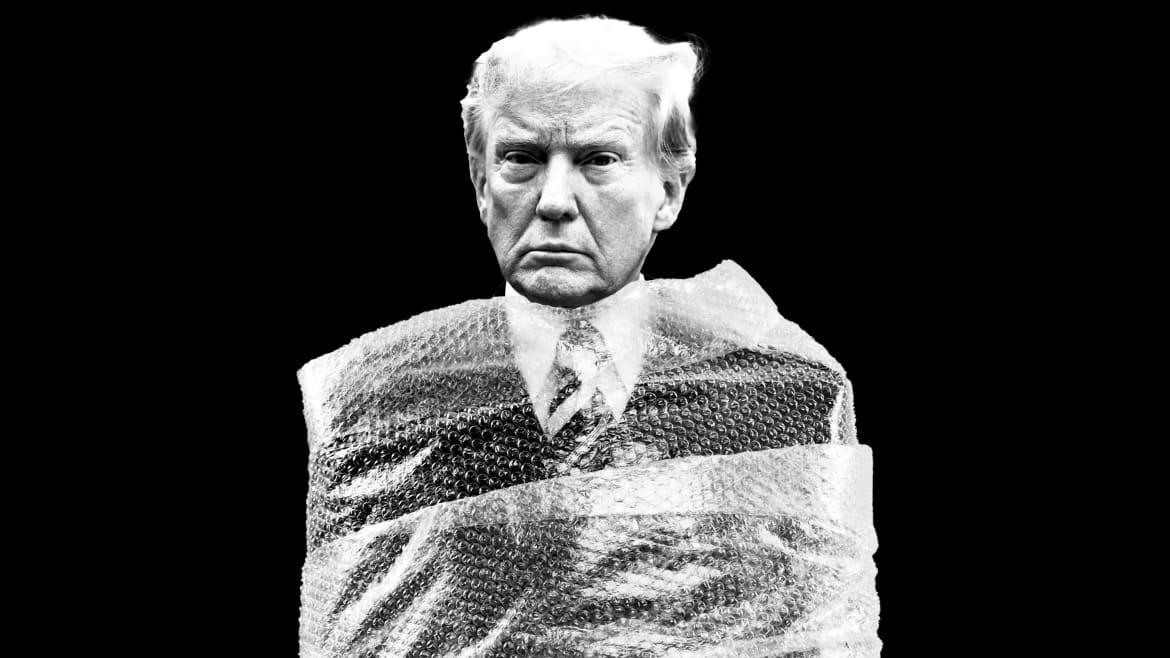The Supreme Court Shouldn’t Even Hear Trump’s Appeal on Immunity Ruling

After a federal appellate court ruled on Tuesday that former President Donald Trump is not immune from prosecution for his actions on and leading up to Jan. 6, 2021, it is not necessarily the end of the road for Trump’s legal team in terms of further appeals. But it should be.
There are likely more appeals coming of this ruling, but, ultimately, the Supreme Court should do what it does with thousands of cases every year: it should simply refuse to hear the case, let the lower court’s decision stand, and let the trial court get back to work.
Trump’s legal team has had one goal in mind in defending the former president against the 90-plus felony charges he presently faces: delay. The effort to appeal the decision on immunity was quixotic at best; frivolous at worst.
Federal Appeals Court Swats Down Trump’s Immunity Claims
That is, the arguments were fairly laughable—as evidenced by the oral argument before the appellate court that the former president could have unleashed “SEAL Team 6” to kill a political opponent and would be immune from prosecution if he was not impeached and convicted for that action in Congress.
But the point was not simply to make a legal argument in the hope that maybe a judge somewhere might buy it, perhaps taking to heart Wayne Gretzky’s (or was it Michael Scott’s?) adage, “You miss 100 percent of the shots you don’t take.” Rather, the point really was simply to delay in the hope that all of the cases would extend into Nov. 2024—at least to avoid a conviction prior to the election, probably because polling suggests that even some of Trump’s most ardent supporters say they will not vote for a felon.
Still, the appellate process has not fully run its course in this case, so further delay is still on the table. Trump’s team can seek review by all the judges in the D.C. Circuit, three of whom have already ruled against him. That sort of review is rare. And instances where the entire panel of judges in a court—referred to as the court sitting “en banc”—overturns the judges who reached the decision even rarer still.
That will take some time, for certain, but the Circuit can rule quickly, as it both should, and, I predict, will. There just aren’t any grounds for reviewing, let alone overturning, the three-judge panel’s decision.
There’s another reason why such a move is not just futile, it’s also one the Trump legal team is probably going to bypass: the three-judge panel effectively delayed sending the case back to the trial judge, but only if an appeal is taken to the Supreme Court, not if it is only sought by the D.C. Circuit as a whole.
If the Jan. 6 Capitol Riot Had Never Happened, Trump Still Attempted a Self-Coup
The ultimate step, then, is the Supreme Court. And this case has been on a collision course with that court since the day it was filed.
But the nation’s highest court should treat this case like the overwhelming number of litigants who attempt to appeal cases to it: roughly 7,000 requests come to the Court each year to review lower court’s rulings and yet the Court hears, at most, about 150 of those cases, or roughly 2 percent of those appeals. The cases it does hear tend to be those of great national importance, for sure, but also where the law needs to be clarified—like where what occurs is known as a “circuit split”: different appellate courts from across the country reaching different conclusions on a critical issue of law.
The Court turns down death penalty appeals and cases of lesser consequence practically every week. It tends to reserve the wielding of its powers only when necessary, and with the immunity case, the D.C. Circuit’s ruling is not worth the Court’s time.
Not because it is not important. It is extremely important. But because there just aren’t legal issues that need to be resolved; Trump’s legal team barely raised arguments that weren’t laughable, and some were. This is just not a case for the Supreme Court.
Trump Would Be a Rogue Cop With Presidential Immunity
Instead, the Court has a much bigger case before it that clearly does need its attention, and it’s getting it: the appeal of the decision of the Colorado Supreme Court that seeks to keep the former president off the ballot in that state because of his role in the events of Jan. 6. The Supreme Court can, and likely will, overturn that decision and thwart other efforts seeking to invoke the 14th Amendment’s Insurrection Clause against the former president. And reasonable legal minds might differ on the appropriate outcome in that case.
At the same time, the Supreme Court does not need to insulate the former president from any consequences for his efforts to subvert the peaceful transfer of power.
John Adams famously proclaimed nearly 250 years ago that a core principle upon which this nation was founded is that we are a nation of laws, and not men. The Court has a simple way to validate that in the immunity case: Do nothing and let the trial run its course.
Get the Daily Beast's biggest scoops and scandals delivered right to your inbox. Sign up now.
Stay informed and gain unlimited access to the Daily Beast's unmatched reporting. Subscribe now.


